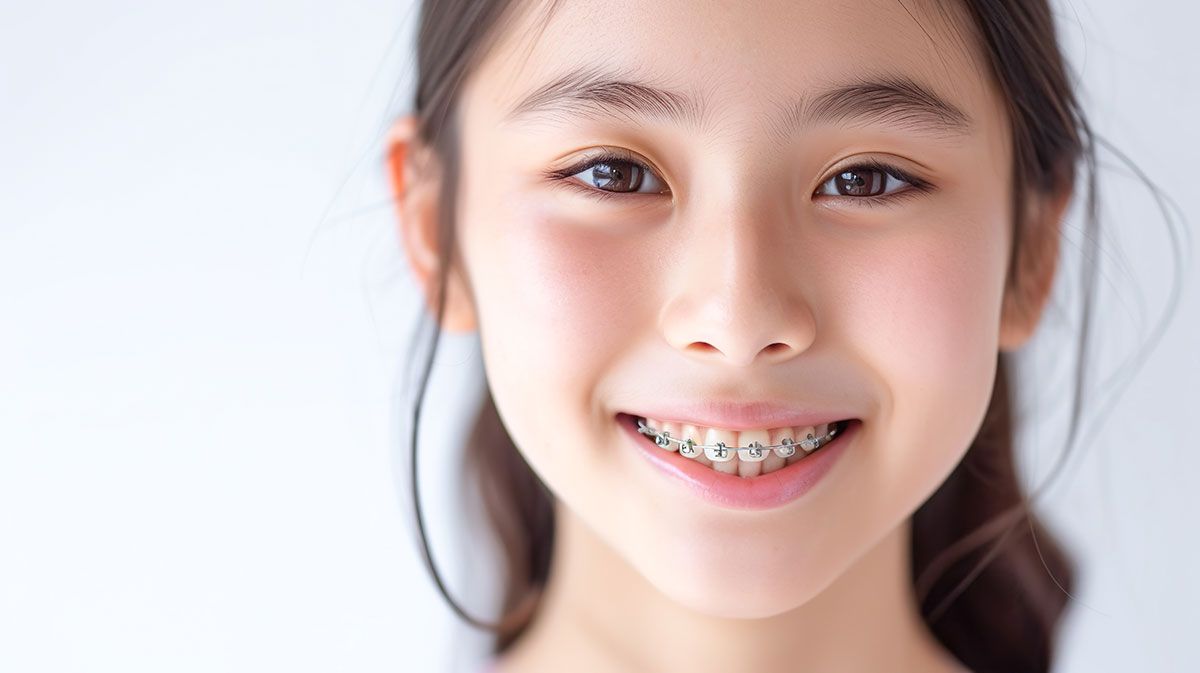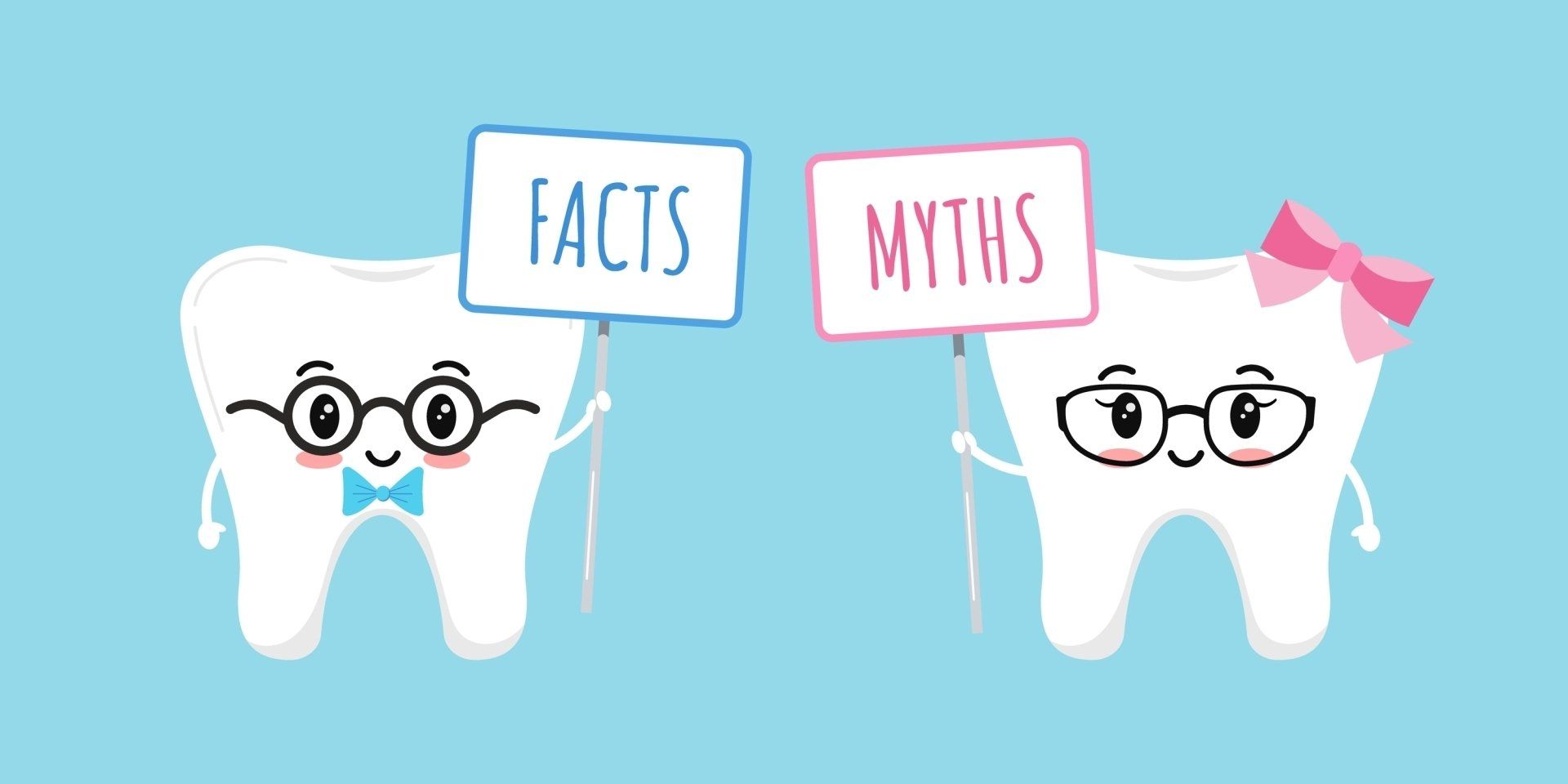There’s a lot of information we’re fed surrounding dental hygiene from a very young age, from “don’t eat too much sugar, you’ll get cavities” to “brush your teeth after every meal”. And while most of these sayings have some truth in them, not all of them will lead to a healthy set of teeth and gums.
We look at the 6 biggest dental myths many of us still live by, debunked by actual dentists to get you on the right track to better oral hygiene and a stronger set of pearly whites.
Brushing your teeth after meals will make them healthier
We’ve long been told that it’s a good habit to brush our teeth in the morning and night. And while that usually suffices, it doesn’t stop the diligent ones amongst us from giving their pearly whites a good scrub down after every meal.
However, does brushing after every meal really lead to healthier teeth? While the act of brushing after a meal does work to remove food particles stuck between the nooks and crannies of your teeth, brushing too soon after a meal can accelerate the corrosion of your enamel. The reason? Acids from food that settle on your teeth during mealtime can temporarily weaken the enamel. Any brushing during that time can lead to the accelerated corrosion of your enamel.
This team of dentists advises that you wait a good 30 minutes after each meal to brush. This allows time for your saliva to neutralize the acid on your teeth, or for beverages to wash it away.
You only need to change your toothbrush if the bristles are out of shape
Ask your family and friends how often they switch out their toothbrushes, and you might find yourself looking at “every 3 months or so” as the most common answer. After all, if your toothbrush still looks pristine after months into use, is there really a need for a new one? The professional answer is yes. If you’re using your toothbrush the right way, the bristles will wear themselves out within 4-6 weeks - signalling time for a change.
Dragging out the lifespan of your toothbrush may be cost-effective, but it’ll also increase your chances of tooth decay and periodontal infections if your teeth are not cleaned well for a prolonged period of time.
If your gums bleed after brushing, you are brushing too hard
The sight of blood after brushing your teeth doesn’t necessarily mean you are roughhousing your gums. More often than not, bleeding gums are a sign of unhealthy gums - a result of improper care. Gingivitis, also known as gum infection, is one of the leading causes of bloody gums after a brushing session. One surefire way to spot gingivitis is to identify the symptoms:
- Inflamed gums that are a dark shade of red
- Persistent bad breath
- Gum sensitivity
If you suspect that you might be down with a mild case of gingivitis, aside from booking an appointment with your dentist, you’ll want to ensure you’ve got a thorough daily brushing and flossing regimen in place. To prevent excessive bleeding, you can also opt for a toothbrush with softer bristles.
No need to look after baby teeth as they’ll fall out eventually
Parents are commonly blindsided by the misconception that milk teeth require little to no care as they all fall out and get replaced by permanent teeth eventually. It’s important to know that baby teeth play a fundamental role in our oral development and act as the natural “placeholders” or space maintainers for permanent teeth to erupt.
If not cared for properly, a child is at risk of the following problems:
- Tooth decay
- Premature loss of teeth
- Crowding of permanent teeth
- Adult teeth are unable to penetrate the gum as it has thickened over time
To avoid this, you should ensure regular cleaning and brushing of your child’s teeth and gums once your baby’s first tooth erupts. It’s recommended to assist your child with the brushing process as children are often unable to clean their teeth well.
If I have straight teeth, my children will most likely have straight teeth
While genetics does have a role to play in determining whether or not a child will have straight or crooked teeth, having straight teeth isn’t a guarantee that your children’s teeth will turn out the same way. Poor habits such as thumb-sucking or over-reliance on pacifiers can interfere with a tooth’s growth trajectory, forcing teeth out of shape.
You might start counting your lucky stars and fawning over your child’s near-perfect set of milk teeth, but here’s the kicker: most children have milk teeth that are generally straight. The real test comes when their permanent teeth come in.
In an age where a high calcium intake is recommended in any growing child’s diet, dentists are noticing a trend of adult teeth coming out bigger and healthier. And while this is a good thing, it can also result in overcrowding and crooked teeth in children.
For parents with growing concerns surrounding their child’s oral health and development, it’s good to pencil in a visit with
a child-friendly orthodontist between the ages of 6 and 7, as recommended by the American Association of Dentists. Even if adult teeth haven’t started breaking through, early checkups will enable your orthodontist to arrest and correct issues pertaining to jaw formation and overbite early to possibly avoid the need for braces in the future.
I only need to see a dentist when my teeth or gums hurt me
Perhaps the biggest myth of all is that dental visits aren’t a priority until a real - and painful - problem springs up.
Even if you brush religiously, and floss and gargle like clockwork, you still could be susceptible to gum disease if you’re not doing it right. In fact, there have been cases where tooth decay and gum infections fall under the radar simply because they’re asymptomatic. By the time something starts hurting, you’ll already have progressed to an advanced stage of tooth decay or infection. This is why it’s pertinent to schedule two trips to the dentist a year for a thorough clean.
The truth behind the dental myths
As long as our teeth look relatively bright and clean, most of us are quick to assume that everything is fine and dandy. A visit to the dentist? Maybe next year. But regardless of how diligent you are at brushing and flossing, regular trips to the dentist are the only way you’ll be able to ensure your teeth - and gums - are in their healthiest state.
More importantly, with so much misinformation floating around the world wide web, it’s hard to discern the truths from the half-truths. So the next time you have a burning question about dental care, the best person to answer that would be your dentist.
On that note, parents of little ones need to be aware of the importance of early dental intervention and care to rectify early tooth decay and jaw formation problems in their child’s early years if they want to ensure their kid is able to smile with confidence in the future.






